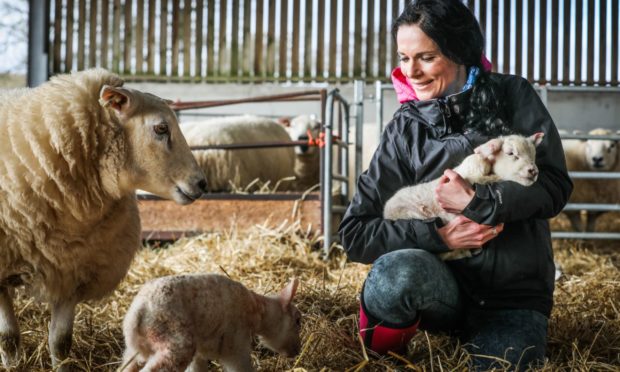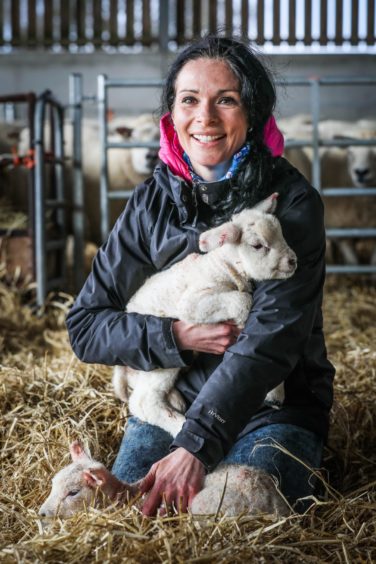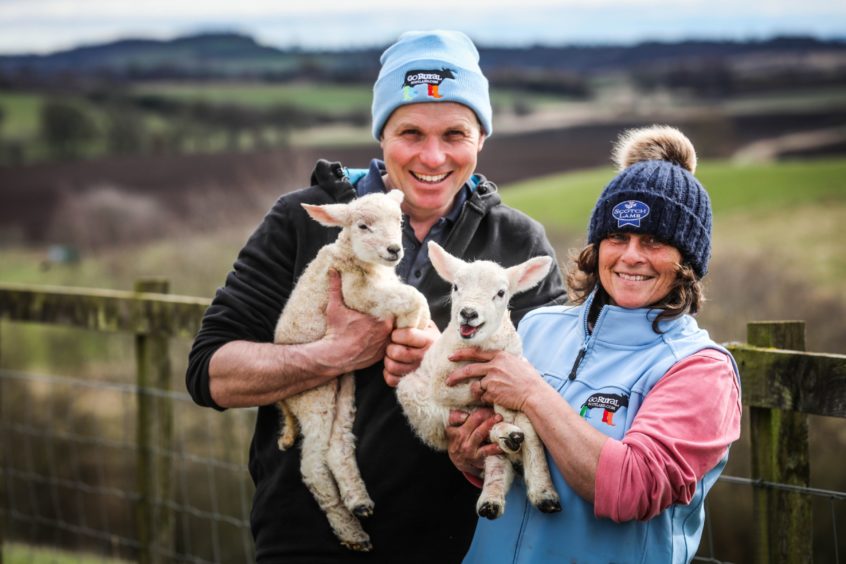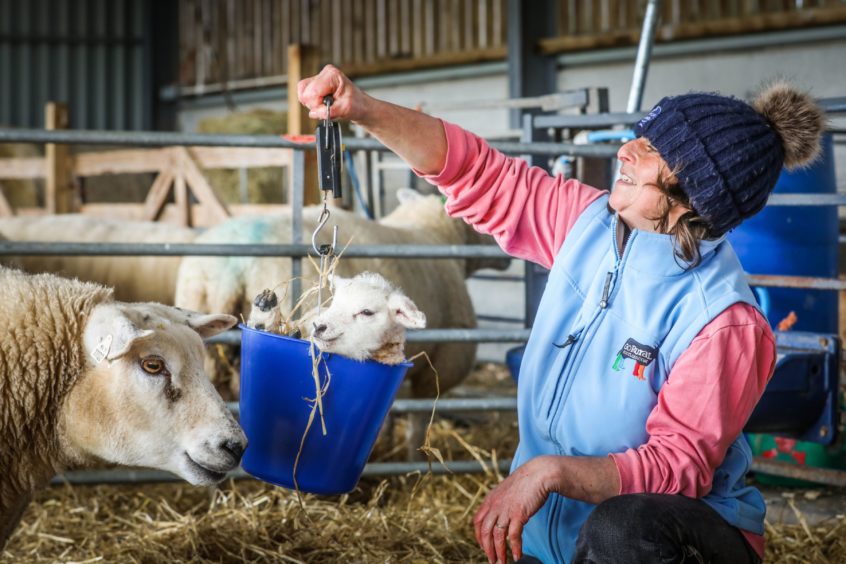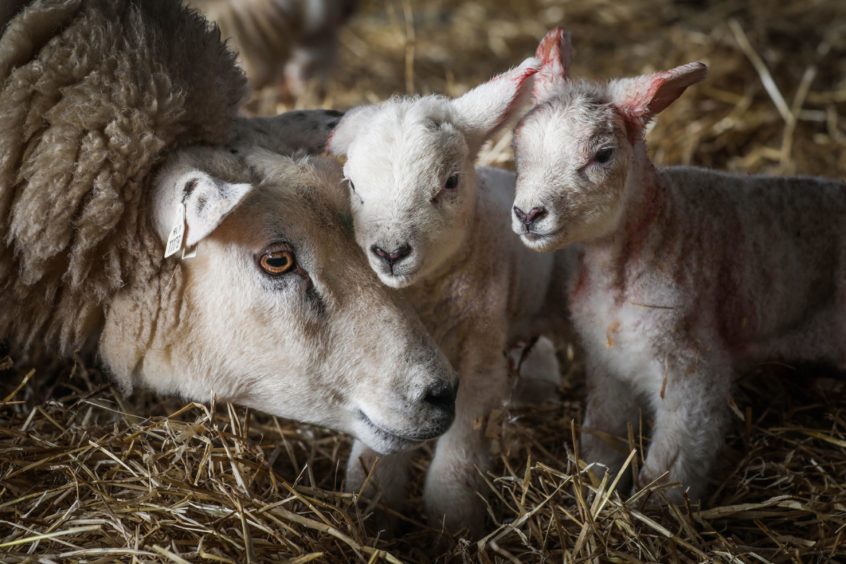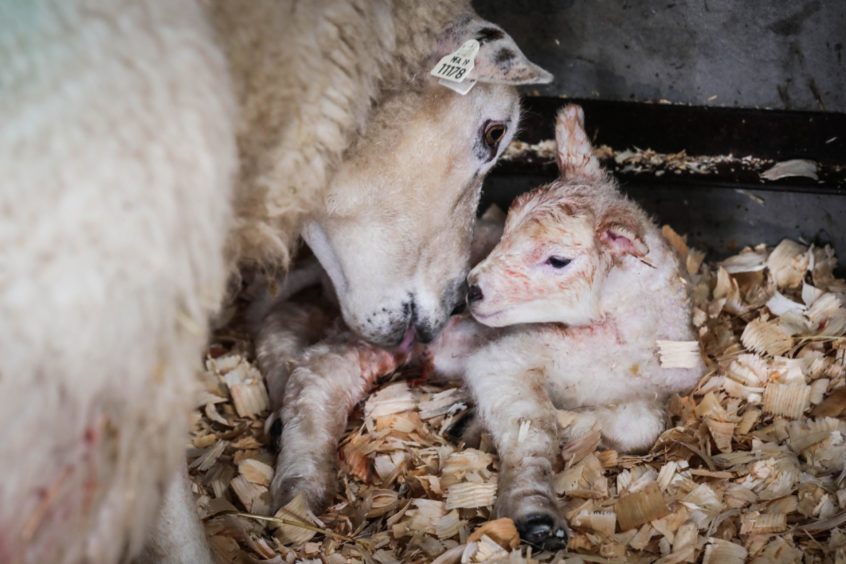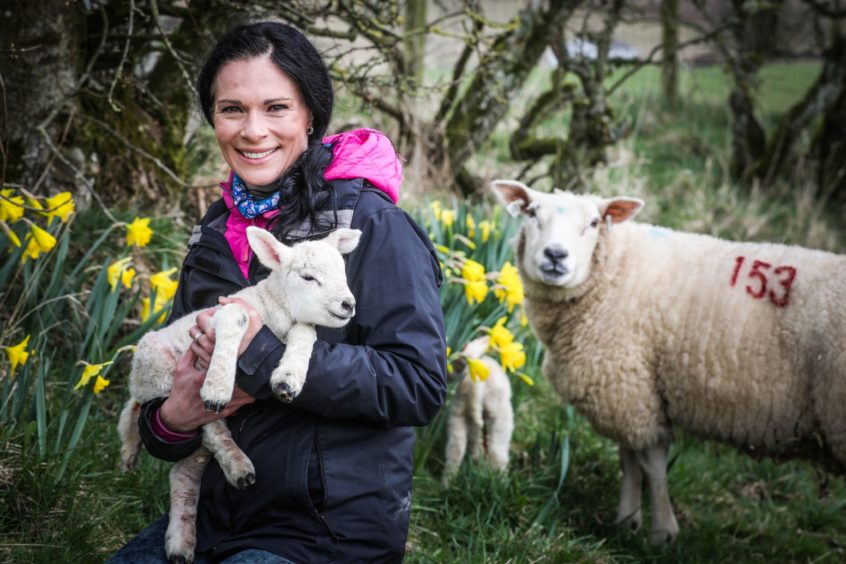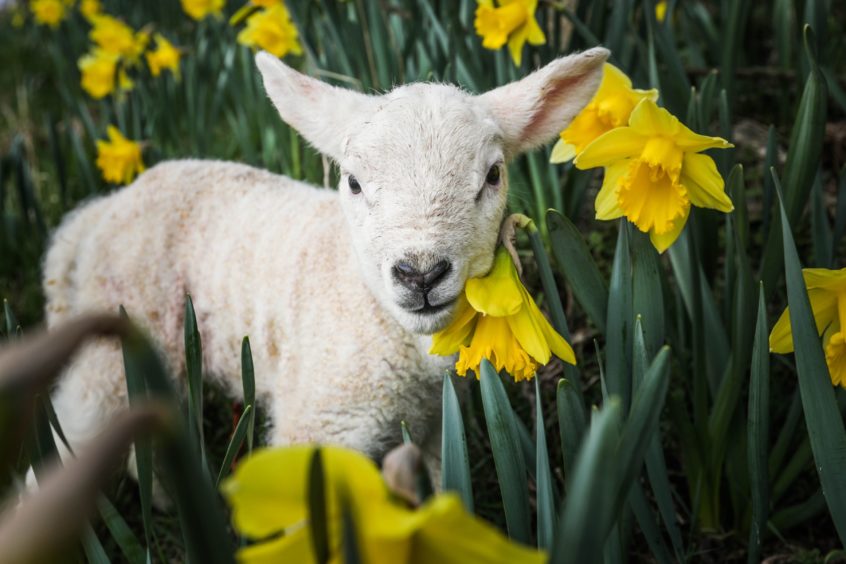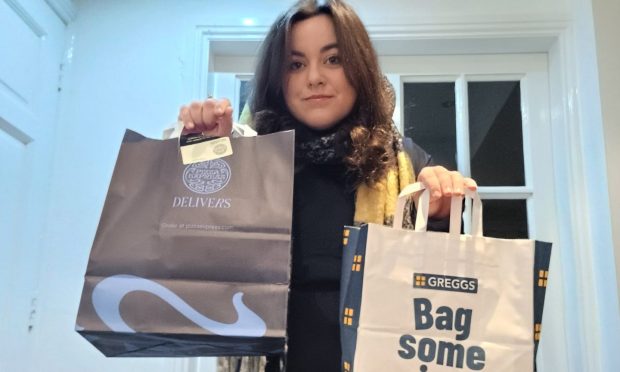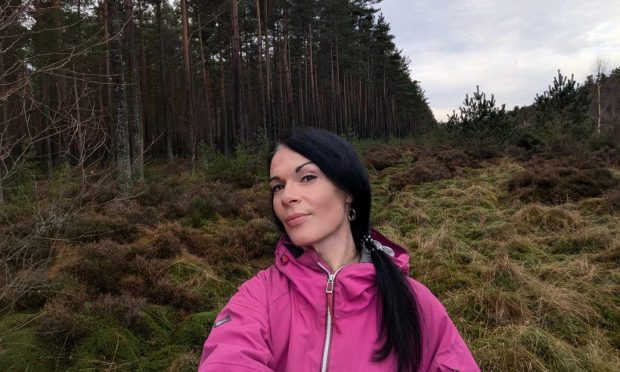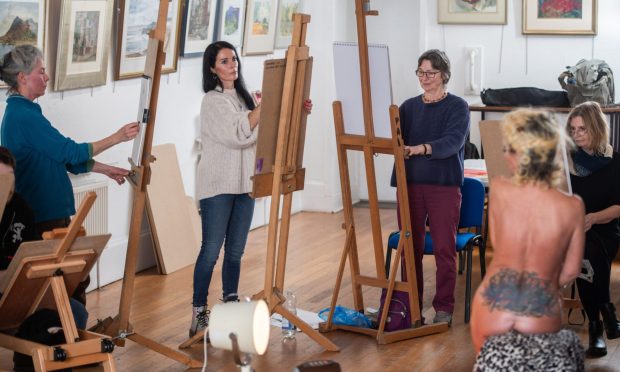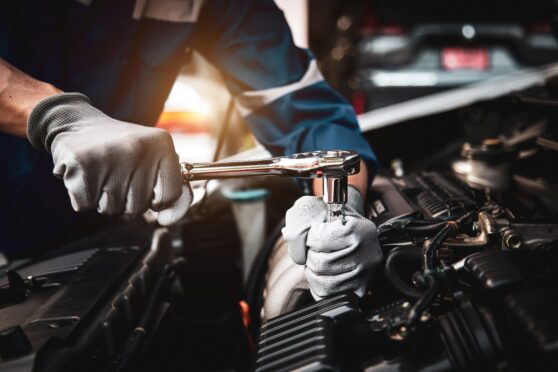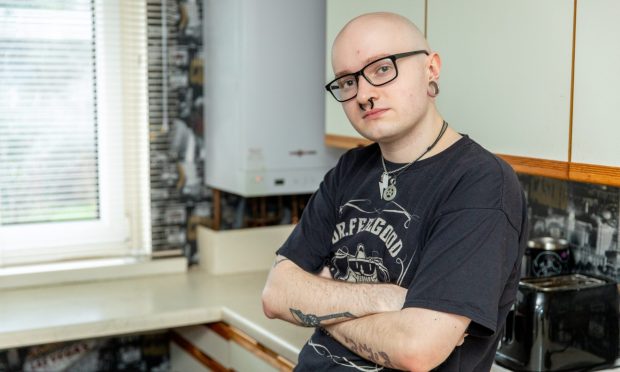Gayle meets some of the newborn lambs starring in Facebook livestreams from Scottish farms.
Cuddling a newborn lamb has to be one of the best feelings in the world.
I’m lucky enough to turn up at Incheoch farm in Glenisla literally just an hour after a couple of the cute creatures have been born.
Farm owners Debbie and Neil McGowan are more than happy to let me hug them and I feel as though I’m in heaven when one fluffy wee girl nuzzles into me, her heart beating wildly.
Once I’ve mastered how to hold her properly (her legs were initially flailing all over the place), she settles into my arms for a snooze. What an honour.
Debbie and Neil are among a group of farmers taking part in Lambathon, an online event offering virtual visitors an insight into Scottish rural life.
Organised by Go Rural Scotland, Lambathon launched last year with the aim of banishing the Covid blues and offering a little spring cheer.
More than 10,000 families from across the globe tuned in to Go Rural’s Facebook Live for daily online tours showing the ins and outs of lambing season.
This year’s Lambathon features not only lambs but cattle, hens, working sheepdogs and other aspects of farming life.
All lambs and sheep raised on Incheoch, Neil and Debbie’s 485-hectare upland farm at the foot of Glenisla, are top quality, and that’s thanks to a combination of diet, environment and the fact the couple have acquired decades of experience between them.
In total, they have 1,000 breeding Lleyn ewes and 100 Texels and they’re dedicated to improving the genetics of their flock.
“Normally, visitors staying in our holiday house are keen to help with lambing; they love being part of it,” says Neil.
“But with coronavirus, people haven’t been able to visit, so it’s great to give them an insight into what’s happening via Lambathon.”
Those who tune in will be able to watch Neil, Debbie and their two teenagers as they chart everything from live births to lambs being released outside to munch on grass.
As I crouch down in the cosy shed with two Texel lambs, Debbie weighs one in a plastic tub.
“She’s 4kg which is a good, healthy weight,” she says.
Debbie then sprays the lamb’s umbilical cord with iodine to prevent infection and makes sure it suckles some colostrum, a nutritious energy source which contains antibodies and helps maintain body temperature. Orphan lambs need foster mums, and ewes who’ve lost their own lambs are often happy to take on the role. And if a ewe has triplets, the smaller lamb is usually taken away and adopted by a ewe that has either lost her lambs or only had a single lamb.
“Ewes can rear triplets, but because they only have two teats, the smallest lamb can be pushed away by its bigger siblings, leaving it hungry,” explains Debbie.
Given all these potential worries, I’m surprised the McGowans look so bright-eyed and bushy-tailed.
“I was up at midnight, Neil was up at 3am, and we were both up at 6.30am,” smiles Debbie, with not a hint of dark shadows or bags under her eyes.
“However, CCTV does increase the amount of time we get in bed as we can keep a close eye on what’s happening in the lambing shed.
“It’s an exciting time; there’s a kick of adrenalin which helps you forget about lack of sleep.”
Neil loves the fact that ewes they regard as just being part of a flock become “individuals” during lambing season, expressing their identities.
“But it’s hard when lambs are stillborn or don’t make it,” he laments. “It can be tricky if it’s cold or snowy; lambing is so dependent on the weather.”
“It’s an exciting time; there’s a kick of adrenalin which helps you forget about lack of sleep.”
Debbie McGowan
Once the hour-old lamb I’m cuddling decides she wants back to her mum, Debbie asks if I want to meet a pair of twins who are just shy of 12 hours old. Well, of course.
These cuties, a tad unsteady on their feet, manage to wobble their way outside to a patch of daffodils where again, I cuddle, stroke and coo over them while their mum grazes contentedly nearby.
“We’re really proud of our lambs,” says Neil, picking one up when it stumbles towards a tree.
And it’s clear the couple, who can tell the sheep apart and even have names for some, are hugely fond of their animals.
I find this hard to reconcile with the fact they are ultimately killed and eaten – but that’s probably me being a tad naive.
“They’re not just a commodity,” insists Neil. “They’re part of who we are. We love them but we’re realistic about what happens.”
Tune in to Lambathon and you’ll also get to meet the McGowan family’s cows, calves and Scots Dumpy chickens… and maybe even see some eggs hatching!
Lambathon runs until May 10, with a different farm in the spotlight on the Go Rural Facebook page at 1pm every day.
Incheoch, which, like many farms is keen to promote the concept of agritourism, will feature on April 13.
Not got a clue what “agritourism” means? Basically it’s where agriculture and tourism combine to offer everything from farm stays and tours to experiences, whether cuddling lambs, ponies or alpacas.
It’s hoped Lambathon will inspire physical visits to agritourism farms when Covid-19 restrictions ease.
Other farms taking part include Balkello Farm in Auchterhouse (The Hideaway Experience), Craigduckie near Dunfermline, Newton of Fothringham near Forfar (Newton Farm Holidays), Cowden Farm near Stonehaven, Newton of Begshill near Drumblade (Boutique Farm Bothies), Lindores in Fife and Kinclune near Kirriemuir.
- Go Rural is a community of farmers across Scotland working together to promote farm visits, holidays and amazing local produce.
- The agritourism offering also includes farm cafes and food experiences.
- Check out Lambathon at facebook.com/gorural/
